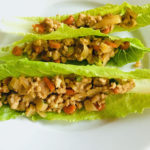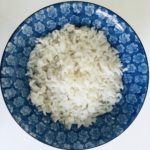A friend said to me recently, “If I bought everything organic, my husband would kill me.” Well, it’s either him or the toxic pesticides, my dear!
But seriously, I understand her financial dilemma. Buying organic in this country usually means spending more, shopping at higher end grocery stores, and seeking out farmers markets. Add the fact that critics question if eating organic really makes a difference in people’s health, and it’s not a surprise that most people are going to shop at supermarkets and buy what’s cheapest.
So what do you do if you want to buy organic, but can’t afford it? One solution is to buy organic when it matters most: when buying the fruits and vegetables that are the most likely to be contaminated with pesticides.
The Environmental Working Group’s Shopper’s Guide to Pesticides can help you with your organic shopping list. The guide includes the 12 most contaminated fruits and vegetables and the 15 least contaminated fruits and vegetables.
THE DIRTY DOZEN
Buy organic when possible:
 Peach
Peach- Apple
- Bell Pepper
- Celery
- Nectarine
- Strawberries
- Cherries
- Kale
- Lettuce
- Grapes (Imported)
- Carrot
- Pear
THE CLEAN 15
These conventionally-grown fruits and vegetables are lowest in pesticides:
 Onion
Onion- Avocado
- Sweet Corn
- Pineapple
- Mango
- Asparagus
- Sweet Peas
- Kiwi
- Cabbage
- Eggplant
- Papaya
- Watermelon
- Broccoli
- Potato
- Sweet Potato
You can read the full list here: 47 fruits and vegetables.
Other reasons to buy organic: GMOs
When the DNA of foods has been genetically altered, these foods are said to be Genetically Modified Organisms, or GMOs. There are many arguments in favor of genetically engineering foods, such as improving a food’s resistance to disease, increasing the nutrients of a food, making a food taste better, and decreasing the allergenic component of a food. There are also many arguments against genetically engineered foods, such as potentially introducing new allergens into foods and that “messing” with the natural state of the foods could lead to unknown effects on humans, animals and the environment. A major concern in the U.S. is that there is no labeling requirement for the use of GMOs in foods, meaning that people are consuming genetically engineered food without knowing it.
How do you know if you are eating GMOs? Most genetically modified foods are made from corn, soybeans, canola and cottonseed. Since corn and soy are used in so many of our processed foods, chances are that GMOs are being consumed a lot! Remember that corn can come in many forms: corn starch, corn oil, corn syrup, and dextrose to name just a few! Soy also is used in many forms: soy lecithin, soybean oil, soy protein isolate, and more.
How can you avoid GMOs? Buy organic! Foods that are labeled organic cannot contain genetically modified organisms (GMOs). An organic label is really your only guarantee unless a company voluntarily states on their product that it is made without the use of GMOs. If you are concerned about GMOs, make sure that buy organic when buying products made with corn, soybeans, canola oil and cottonseed oil.
Organic animal products?
Animal products — meat, poultry, eggs and dairy — labeled organic means that they are raised without the use of antibiotics or growth hormones (rBST or rBGH).
If it isn’t labeled organic, does that mean that pesticides and GMOs and hormones are used?
No. Just because a food is not labeled organic doesn’t mean that it does contain pesticides, or GMOs, or growth hormones. Some companies haven’t gone through the certification process to be able to bear the organic label. To find out more information about a food, check the package, ask the farmers directly or call the product manufacturers.
Learn more!
- Shopper’s Guide to Pesticides
- Non-GMO Shopping Guide
- “Organic” Frequently Asked Questions
- The dangers of growth hormone in dairy products
- “Don’t Cry Over rBST Milk” – a counterargument to the dangers of bovine growth hormone







OrganicTrade (OTA) says
You raise some valid points about when to buy organic. However, the Organic Trade Association would caution people against the idea of limiting their organic purchases to the list of items you outline in this blog. While establishing such limits may help to reduce the size of your personal food budget, it misses an important point: buying organic is about more than keeping pesticides out of our bodies. It is about supporting a system of sustainable agricultural management that promotes soil health and fertility through the use of such methods as crop rotation and cover cropping, which nourish plants, foster species diversity, help combat climate change, prevent damage to valuable water resources, and protect farmers and farmers’ families from exposure to harmful chemicals. In this sense, buying organic is a commitment to the bigger, more complex picture of which our personal health is a part.
OrganicTrade (OTA) says
If you are looking for ways to save, consider choosing organic versions of the products you buy most. Whether that is milk, produce, or personal care products, buying organic will not only help reduce your exposure to harmful synthetic pesticides and fertilizers, but also support a system of agricultural management that is great for the planet.
Kim, The Food Allergy Coach says
I’m glad you posted this. This list is what I live by. If I could buy organic 100% of the time, I would. When it’s just not feasible, this is the list I turn to.
Reading The Omnivore’s Dilemma, Animal, Vegetable, Miracle, and now In Defense of Food (a review of this book will appear on my blog soon) have all driven home the importance of growing and eating organic foods. When at all possible, I try to buy LOCAL organic produce b/c I’m realizing just how much fuel is used to transport organic produce from all over…how organic is that? Really makes you think. Do I want my money going to fuel/oil companies or to local farmers?
Thanks!
alison says
OTA,
I absolutely agree with you. There are many many reasons to buy organic. I actually buy almost everything organic for my family and believe very strongly in all that you have mentioned. I hope that one day everyone is able to afford to eat all organic and that it is just part of the mainstream.
Kim,
Thanks for mentioning those 2 books. I would also recommend the book Food, Inc. and yes, buying local when possible! Or better yet, start your own garden.
Rhonda says
This is very interesting information. Thanks for posting it. You have certainly given me some things to think about when I am at the grocery store next time. Like Kim, I have read the Omnivore’s Dilemma and try to buy local whenever possible. What I personally find so frustrating is that I can go pick my own strawberries close to home, but in the grocery store the shelves only contain strawberries that are grown on the other side of the country. Why is there such a disconnect with distribution? Why can’t stores sell produce that is grown locally instead of shipping across the country?